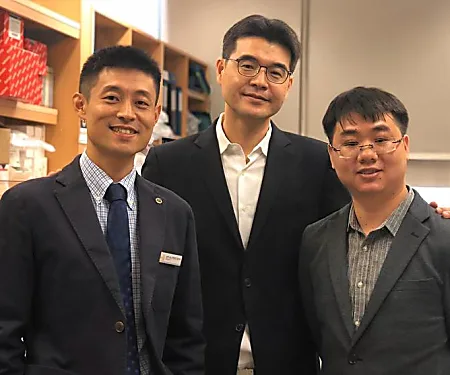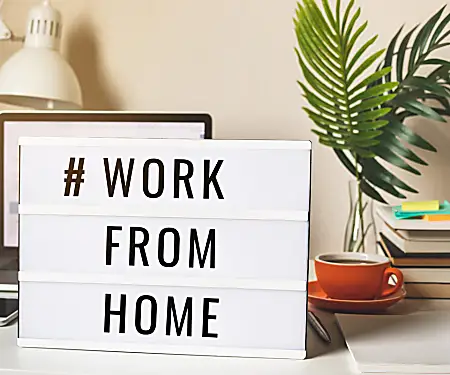Post election 2020 comments
There are many news reports attempting to explain the mere 10% PAP vote shift. No one looks the other way and asks, how come after all these national issues, the other 60% did not shift?
The bigger elephant in the room is the 60% for whom the PAP can do no evil and can always get away with murder. PAP’s multiple screw ups would have seen them lose power in any Western democracy. Yet, PAP not only retained power but continued to hold on to a super majority. The danger for Singapore is that the 60% will continue to vote for PAP all the way to Singapore’s utter ruin.
‘Silent majority’
In the lead up to the elections, a video was circulated of someone claiming to be the silent majority who has finally spoken up. To identify with the silent majority is to admit he has always been a PAP voter but is fed up this time. He is the perfect example of why the term silent majority is an over simplification of PAP voters.
The 10% vote swing suggests that only 10% of the silent majority aren’t blindly aligned with PAP or are capable of breaking free when a genuine need arises.
Limited reach of internet
The continued support of 60% of voters for PAP can be attributed in part to the limited reach of the Internet.
Straits Times dubbed this year as our first true internet election. Yet, opposition parties like People’s Voice that relied heavily on the internet did not see big results materialise for them. People’s Voice only polled 21.26% compared to similarly new or small parties like Reform Party 27.84%, SDA 23.67%, Red Dot United 25.38%, People’s Power 28.26% that did not go into the Internet in a very big way.
There are several reasons why the internet’s reach has its limits:
1) Many old folks aren’t connected to the internet
There is a general impression that younger voters have given more support to the opposition this time. Part of the reason is that our old folks have no access to the internet and so can’t avail themselves to so many good alternative arguments that exist on the internet.
For this group, there is no other way than walking the ground since PAP controls all mainstream media.
2) Too many videos and articles on the internet, competition for viewership is very intense
With so many alternate videos competing for attention, it is important for videos to be short and concise, perhaps no longer than 5 minutes. Opposition should only focus on at most 3 of the most important issues to discuss each day. If each issue requires 5 minutes to be of substance, then make 3 separate videos of 5 minutes each with links between videos.
3)Little overlap in personal relationships between the 60% and the 40%
There is a large group of Singaporeans who are comfortable with their lives and who are not personally affected by the issues going on around them. They are largely apolitical and apathetic. They won’t be scouring the internet to devour the latest videos on current social issues.
Quite often for these people, the only reason why they watch this video or that is because the links were sent to them via Whatsapp. But Whatsapp is between friends and close associates. If the overlap in personal relationships between the 60% and the 40% isn’t significant, then arguments from either side can’t flow to the other side. So the bulk of the 60% will predominantly receive PAP endorsed videos and arguments that reinforce their pre-existing viewpoints and vice versa.
If that is the situation, then again, no choice, the opposition has to walk the ground, knock door to door and sell their ideas one household at a time. They have 5 years to do so and will need 5 years to cover sufficient ground. One problem is that they can’t go into a condominium to sell ideas door to door.
Strong support for PAP amongst new citizens
It is no secret that new citizens is a big reason why PAP continues to hold a super majority. Opposition has to come up with very sensible reasons to convert these new citizens. For example, perhaps new citizens converted to Singapore citizenship to escape the social ills of say India. So we ask them back, if we keep importing Indians into Singapore, wouldn’t Singapore effectively become another India? What is the point of escaping India only to end up in another India disguised as Singapore?
Opposition quality
It is quite obvious that outstanding opposition candidates have a real chance of winning. In 2011, Chen Show Mao’s sterling academic credentials helped WP win Aljunied. This time, Jamus’ outstanding qualifications + oratorical skills helped WP win Seng Kang.
Opposition parties must set the benchmark really high for its candidates. No point fielding ordinary candidates only to discredit themselves. Personally, I support fielding candidates from all walks of life. No one should be discriminated against contesting in elections just because he or she is lowly educated or is of low income. But the sad reality is that our electorate doesn’t think highly of lowly educated candidates.
Opposition disunity
There isn’t sufficient ‘good quality’ opposition candidates to contest all constituencies in Singapore. Opposition parties should unite and field the best possible teams.
If Chee Soon Juan or Paul Tambyah had joined Tan Cheng Bock in Ayer Rajah, Dr Chee might be in parliament already as an NCMP.
The Live TV debate involves at most 3 opposition parties. I believe being on Live TV debate helped showcase the quality of opposition candidates in a way that no other platforms can. Because this important advantage is restricted to just 3 opposition parties, it is of little use to be the 4th or 5th largest opposition party.
Opposition parties should unite and come under three but preferably just two banners: WP or PSP
Conclusion
Strong internet presence alone is insufficient. It is no substitute for walking the ground.
There is an urgent need and an uphill battle to convert new citizens
There should be no more than 2 or 3 opposition parties
A final note: In Singapore, nearly everything we do requires a license. We need a license to drive. We even need a license in the form of the Basic Theory Test to learn to drive. We need a license in the form of the Basic Food Hygiene Course to become a hawker. One of the few things we don’t need a license for is voting.
If we design a rigorous test, not by PAP, on the the social, political and economic issues confronting Singapore today, how many percent will pass?
My guess is, approximately 60% will fail. That I think is the fundamental issue that not only afflicts Singapore but all First World nations as well. At least other First World nations have a free press to educate the electorate but we don’t.
https://trulysingapore.wordpress.com/2020/07/15/post-election-2020-comments/
There are many news reports attempting to explain the mere 10% PAP vote shift. No one looks the other way and asks, how come after all these national issues, the other 60% did not shift?
The bigger elephant in the room is the 60% for whom the PAP can do no evil and can always get away with murder. PAP’s multiple screw ups would have seen them lose power in any Western democracy. Yet, PAP not only retained power but continued to hold on to a super majority. The danger for Singapore is that the 60% will continue to vote for PAP all the way to Singapore’s utter ruin.
‘Silent majority’
In the lead up to the elections, a video was circulated of someone claiming to be the silent majority who has finally spoken up. To identify with the silent majority is to admit he has always been a PAP voter but is fed up this time. He is the perfect example of why the term silent majority is an over simplification of PAP voters.
The 10% vote swing suggests that only 10% of the silent majority aren’t blindly aligned with PAP or are capable of breaking free when a genuine need arises.
Limited reach of internet
The continued support of 60% of voters for PAP can be attributed in part to the limited reach of the Internet.
Straits Times dubbed this year as our first true internet election. Yet, opposition parties like People’s Voice that relied heavily on the internet did not see big results materialise for them. People’s Voice only polled 21.26% compared to similarly new or small parties like Reform Party 27.84%, SDA 23.67%, Red Dot United 25.38%, People’s Power 28.26% that did not go into the Internet in a very big way.
There are several reasons why the internet’s reach has its limits:
1) Many old folks aren’t connected to the internet
There is a general impression that younger voters have given more support to the opposition this time. Part of the reason is that our old folks have no access to the internet and so can’t avail themselves to so many good alternative arguments that exist on the internet.
For this group, there is no other way than walking the ground since PAP controls all mainstream media.
2) Too many videos and articles on the internet, competition for viewership is very intense
With so many alternate videos competing for attention, it is important for videos to be short and concise, perhaps no longer than 5 minutes. Opposition should only focus on at most 3 of the most important issues to discuss each day. If each issue requires 5 minutes to be of substance, then make 3 separate videos of 5 minutes each with links between videos.
3)Little overlap in personal relationships between the 60% and the 40%
There is a large group of Singaporeans who are comfortable with their lives and who are not personally affected by the issues going on around them. They are largely apolitical and apathetic. They won’t be scouring the internet to devour the latest videos on current social issues.
Quite often for these people, the only reason why they watch this video or that is because the links were sent to them via Whatsapp. But Whatsapp is between friends and close associates. If the overlap in personal relationships between the 60% and the 40% isn’t significant, then arguments from either side can’t flow to the other side. So the bulk of the 60% will predominantly receive PAP endorsed videos and arguments that reinforce their pre-existing viewpoints and vice versa.
If that is the situation, then again, no choice, the opposition has to walk the ground, knock door to door and sell their ideas one household at a time. They have 5 years to do so and will need 5 years to cover sufficient ground. One problem is that they can’t go into a condominium to sell ideas door to door.
Strong support for PAP amongst new citizens
It is no secret that new citizens is a big reason why PAP continues to hold a super majority. Opposition has to come up with very sensible reasons to convert these new citizens. For example, perhaps new citizens converted to Singapore citizenship to escape the social ills of say India. So we ask them back, if we keep importing Indians into Singapore, wouldn’t Singapore effectively become another India? What is the point of escaping India only to end up in another India disguised as Singapore?
Opposition quality
It is quite obvious that outstanding opposition candidates have a real chance of winning. In 2011, Chen Show Mao’s sterling academic credentials helped WP win Aljunied. This time, Jamus’ outstanding qualifications + oratorical skills helped WP win Seng Kang.
Opposition parties must set the benchmark really high for its candidates. No point fielding ordinary candidates only to discredit themselves. Personally, I support fielding candidates from all walks of life. No one should be discriminated against contesting in elections just because he or she is lowly educated or is of low income. But the sad reality is that our electorate doesn’t think highly of lowly educated candidates.
Opposition disunity
There isn’t sufficient ‘good quality’ opposition candidates to contest all constituencies in Singapore. Opposition parties should unite and field the best possible teams.
If Chee Soon Juan or Paul Tambyah had joined Tan Cheng Bock in Ayer Rajah, Dr Chee might be in parliament already as an NCMP.
The Live TV debate involves at most 3 opposition parties. I believe being on Live TV debate helped showcase the quality of opposition candidates in a way that no other platforms can. Because this important advantage is restricted to just 3 opposition parties, it is of little use to be the 4th or 5th largest opposition party.
Opposition parties should unite and come under three but preferably just two banners: WP or PSP
Conclusion
Strong internet presence alone is insufficient. It is no substitute for walking the ground.
There is an urgent need and an uphill battle to convert new citizens
There should be no more than 2 or 3 opposition parties
A final note: In Singapore, nearly everything we do requires a license. We need a license to drive. We even need a license in the form of the Basic Theory Test to learn to drive. We need a license in the form of the Basic Food Hygiene Course to become a hawker. One of the few things we don’t need a license for is voting.
If we design a rigorous test, not by PAP, on the the social, political and economic issues confronting Singapore today, how many percent will pass?
My guess is, approximately 60% will fail. That I think is the fundamental issue that not only afflicts Singapore but all First World nations as well. At least other First World nations have a free press to educate the electorate but we don’t.
https://trulysingapore.wordpress.com/2020/07/15/post-election-2020-comments/


 Faces of the Fight:…
Faces of the Fight:… While at home, why not earn…OpinionWorld Singapore
While at home, why not earn…OpinionWorld Singapore Straighten Your Smile at 70% LessZenyum
Straighten Your Smile at 70% LessZenyum